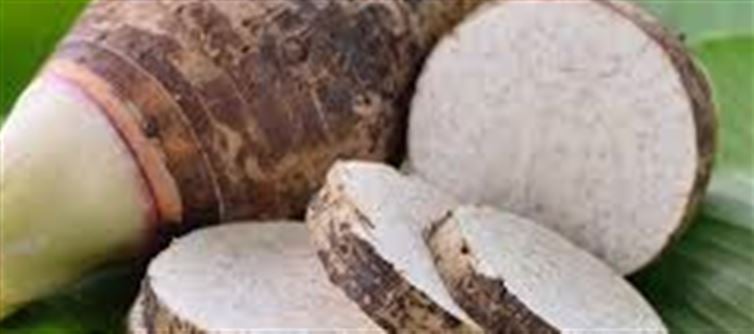
Arbi (taro root) is a beloved ingredient in indian kitchens, known for its unique taste and versatility. But many shy away from cutting it because of the itchy, burning sensation caused by calcium oxalate crystals in its skin. Don’t worry! These simple home remedies will help you say goodbye to itchy hands while prepping your arbi dishes.
1 Soak Arbi in salt Water Before Cutting
Soaking peeled or unpeeled arbi in salted water for 10-15 minutes helps neutralize the irritating calcium oxalate crystals. This simple step significantly reduces itching and makes the vegetable easier to handle.
2 Wear Kitchen Gloves for Protection
If you’re prone to skin sensitivity, wear thin rubber or disposable gloves while cutting arbi. This physical barrier protects your skin from direct contact with the crystals, preventing irritation altogether.
3 Use a Vinegar or Lemon Water Rinse
After peeling and cutting, rinse your hands with diluted vinegar or lemon water. The acidity helps break down the crystals on your skin and soothes the itching quickly.
4 Apply oil on Your Hands Before Cutting
Before starting, apply a thin layer of cooking oil or coconut oil to your hands. The oil acts as a protective layer, minimizing direct contact between the crystals and your skin.
5 Wash Hands with Cold Water and Soap Immediately
Once you finish cutting arbi, wash your hands thoroughly with cold water and soap. Cold water helps reduce irritation, while soap removes any leftover crystals from your skin.
Bonus Tip: If itching persists, apply aloe vera gel or coconut oil to soothe and moisturize irritated skin.
With these simple hacks, you can enjoy cooking your favourite arbi recipes without the discomfort of itchy hands. Happy cooking!
Disclaimer:
The views and opinions expressed in this article are those of the author and do not necessarily reflect the official policy or position of any agency, organization, employer, or company. All information provided is for general informational purposes only. While every effort has been made to ensure accuracy, we make no representations or warranties of any kind, express or implied, about the completeness, reliability, or suitability of the information contained herein. Readers are advised to verify facts and seek professional advice where necessary. Any reliance placed on such information is strictly at the reader’s own risk.




 click and follow Indiaherald WhatsApp channel
click and follow Indiaherald WhatsApp channel